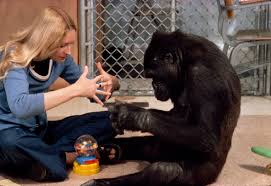Anthropology Short Quiz 8/28
1/16
There's no tags or description
Looks like no tags are added yet.
Name | Mastery | Learn | Test | Matching | Spaced | Call with Kai |
|---|
No analytics yet
Send a link to your students to track their progress
17 Terms
Archaeology
The study of the past thru the use of material remains
Studies include…
ancient stone tools
ancient pottery
pollen grains from plants ancient peoples ate/used
bones of animals left behind by people
modern garbage
Cultural Anthropology
The study of culture and modern peoples
can include modern hunter-gatherers
also smaller subcultures (ex: breast cancer survivors, drug users in NYC, people who play multiplayer games online)
Evolutionary Anthropology
Includes anthropologists who study the biology of humans or do cultural anthropology with an evolutionary theoretical perspective
Linguistics
The study of human language
these kinds of anthropologists study how languages have changed in both modern cultures and cultures of the past

Koko the Gorilla
knows sign language, able to communicate with humans
she understood emotions and had personality
significant anthropoligically because she demonstrates clear communication through ASL which challenges the belief of humans being the smarter “fancier” ape
Lewis Henry Morgan
developed an evolutionary scheme by comparing cultures around the world
believed that cultures moved through history in stages, unilineal, must make a certain piece of technology to move from one stage to the next
this is etic
Herbert Spencer
coined the term “survival of the fittest”
very dangerous concept, eugenics movement will be born due to this way of thinking (selective breeding to make the most superior offspring possible)
armchair anthropologist
Armchair anthropologist
anthropologists that did not perform their own field work
relied on second hand accounts or simply wrote theory
still exist today
Charles Darwin
outlined process of natural selection
a creature is most reproductively successful if it is best adapted to its environment
heavily influenced anthropologists and archaeologists
Herodotus
coined the term “history”
5th century B.C. he used the term as a study of the recent past
thought of as the first ethnographer (watched and studied people to understand their culture) and historian
the accounts on which he retrived this data on cultures were somewhat racist, untrue, and insulting to the people being studied and described
Charles Lyell/James Hutton
both outlined the theory of uniformitarianism
uniformitarianism is the geological principal that past geologic events can be explained by current geologic phenomena
the same things that happened in the past are still happening today
Etic
knowledge gained by taking an outsider perspective, more commonly used by anthropologists because it allows us to fully see and compare the culture being studied to other cultures
Emic
knowledge gained from a within culture perspective
Ethnoarchaeology
studying present cultures to gain insight about past cultures
Ethnography
idea that to understand what people do (their culture) you should watch them do it
Ethnocentrism
belief that your culture is superior to others
Cultural relativism
no one culture is better than another, all cultures should be evaluated/compared on their own terms